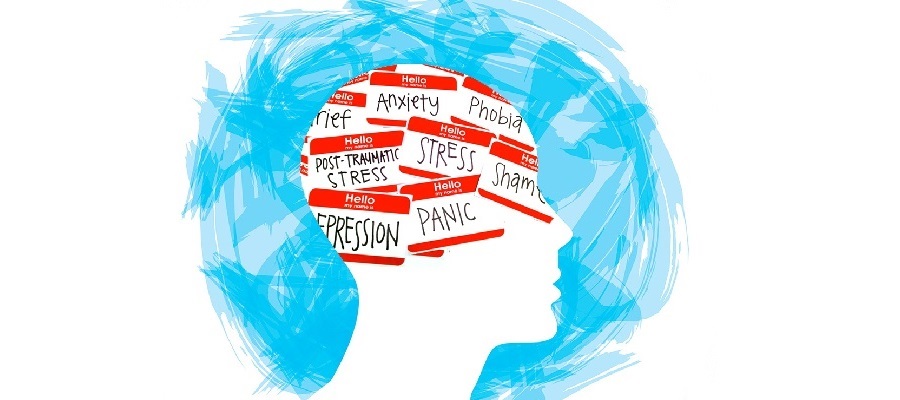What comes into your mind’s eye when you hear the words ‘mental health’ and ‘mental health problems’? Perhaps because of TV and movies, the pictures these words evoke in your mind’s eye are highly dramatic!
First of all, what is mental health?
In simple terms, mental health is your general state of mind and well-being.
What does good mental health look like?
Good mental health means feeling positive about yourself in general, having productive daily habits, being able to cope with life and its challenges1, and being able to form and maintain relationships.
Mental health problems are a common human experience. They affect people from all walks of life. It’s not a weakness, and 1 in 10 young people are affected.
Some examples of mental health problems in young people include depression, anxiety and panic attacks, eating disorders, post-traumatic stress disorder (PTSD) etc. These happen usually because of events in their lives.
Poor mental health can make the performance of normal every day activities hard to do, reducing your quality of life.
The emotional well-being of children is just as important as their physical health. A strong mental health supports resilience2 in children and young people, which allows them to cope with life’s challenges and grow into well-rounded healthy adults.
CONTRIBUTING FACTORS TO MENTAL HEALTH PROBLEMS IN YOUNG PEOPLE
Mental health problems may be more common in modern times, especially with the advent3 of social media. However, most things that happen to children, in general, do not plunge4 them into mental health problems. There are some contributing factors.
For example, traumatic events can trigger5 problems for vulnerable6 children and young people. Some events that can cause trauma include the death of a loved one, the separation or divorce of parents, excessive consumption of social media, experiencing discrimination, moving homes, educational difficulties, the birth of a new sibling7, etc.
HELP FOR DEALING WITH MENTAL HEALTH PROBLEMS
Parental Help
Our parents are our shield8, our first defense in a difficult world. When we are having a hard time, our parents are there to uplift our spirits. Do not be afraid to go to them with whatever is bothering you. Warm hugs, talking it out, practical help, and it will feel like a huge weight has been lifted from your shoulders.
As adults, parents have been through the growing pains of childhood and teenage. Who better to guide and comfort you through them than the humans who love you best?
Help from Friends and Loved Ones
Sometimes all we need is a shoulder to cry on in order to let some hurts go and friends and loved ones who care about us are an amazing support.
Professional Help
If you are dealing with problems at school, a caring school teacher, guidance counselor9 or even an educational psychologist may be needed. These professionals are there to help you do your best academically, and a good mental health affects that.
ACTIVITIES
Tips for Promoting Good Mental Health
1. A balanced diet: Did you know that about 90 percent of serotonin ( a brain neurotransmitter, also known as the Happy Hormone because it contributes to feelings of happiness in the brain) is actually produced in the intestines10? How wild is that? A good and balanced diet is therefore even more essential than ever not only for a healthy body, but also for a healthy and happy mind.
For this activity, make a list of healthy fruits and food ingredients that you are going to add to your diet pronto! A healthy diet, a healthy mind.
2. Cultivating a strong sense of self: In this activity, you are going to get to know yourself even better. Draw two columns. Make a list of your strengths on one column, and weaknesses on the other. You can ask parents and friends for help. They probably may know and love some qualities about you that you may even be unaware of11. How can you increase your strengths? Perhaps learning some new skills or strengthening existing ones. Learning and positive reinforcements boost12 serotonin levels, and therefore good mental health!
3. Developing productive habits: Some people find it therapeutic to take long walks or to cook. What other habits can you think of that can boost positive emotional balance? Make a list.
4. Appreciating and uplifting those around you: Don’t you feel sad when you feel unappreciated? Your loved ones also feel the same. Write short notes to your loved ones, including friends, parents, teachers; tell them what you love about them, and how much you appreciate them. This will make their day, and their joy will also make your day!
Reach out to other people around you, invite them out on fun activities, or simply talk to them more. This will encourage feelings of love, trust, understanding, belonging, and will make not only them feel valued, but you as well.
Cara Siskova
VOCABULARY: 1 výzva, ťažká úloha – výzva, těžký úkol; 2 pružnosť, života schopnosť – pružnosť, života schopnost; 3 príchod – příchod; 4 strčíť, hodiť – strčit, hodit; 5 spustiť – spustit; 6 zraniteľný, bezbranný – zranitelný, bezbranný; 7 súrodenec – sourozenec; 8 štít, ochrana; 9 výchovný poradca – výchovnýporadce; 10 črevá – střeva; 11 nebyť si vedomý – nebýt si vědom; 12 pozdvihnúť, podporiť – pozvednout, podpořit

